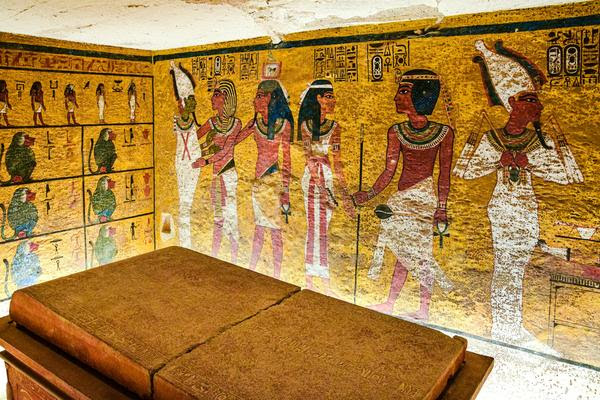It’s said to be one of the most important archaeological discoveries in recent years.
Yesterday, officials in Egypt announced the discovery of the tomb of King Thutmose II, who reigned for over two centuries between about 1550 BC and 1292 BC. It’s the first royal Egyptian tomb to be discovered since that of King Tutankhamun in 1922.
This follows the recent discovery of the tomb of Teti Neb Fu, believed to have been a doctor to ancient Egyptian royals.
Stimulus
There’s a number of news reports on these discoveries, so pick something you think might suit your class:
CBS News Article on the discovery of Thutmose’s tomb
Forbes magazine article consisting of the key facts.
CBBC Newsround article on the discovery of Teti Neb Fu’s tomb.

Questions
These stories, and the actions of the archaeologists – such as taking things from the tombs to display in museums, are rich with concepts to prompt discussion. If your students are experienced P4C’ers, familiar with philosophical questions and how to create their own, why not get them to suggest some before voting for one to talk about?
Otherwise, you could select from the menu below – either before your lesson, or let the class decide.
- Is it okay to open ancient tombs to learn about history, or should we leave them alone out of respect?
- Does it make a difference if there is a written instruction on the tomb telling you to keep out?
- If people from long ago wanted to rest in peace, is it right to move their bodies to different places today?
- Is it more acceptable to move objects found in the tombs, or should they be left too?
- Should we protect ancient tombs even if they are very old and falling apart, or is it okay to let nature take its course?
- How would you feel if someone found and studied the grave of one of your ancient ancestors?
The last question is a good opportunity to try the “Empty Chair” technique which invites students to ask who might we need to hear from to enrich our discussion? Watch Jason explain it below:

This article from a student publication in Cairo provides a good overview of some of the points on either side of the questions about disturbing ancient tombs. When there a lot of separate arguments within the same side (for example, it’s argued that excavating tombs not only teaches us about history, but also protects from grave-robbers, and it was also a long time ago), you can let students rank the points from strongest to weakest.
Ancient Egypt is a very popular topic in primary schools and so it’s likely your students will already have some knowledge about beliefs on the afterlife from this time. Or you might want to file this one away until they’re set to learn about it with you!
What’s on in the Philosoverse?
It’s half-term for many schools in the UK so Jason is enjoying some time up in Scotland and catching up with work in between his trips to the nearby mountains.
After returning to deliver INSET at Shield Row School, Co. Durham last week, Tom is now preparing for our work with schools in the remainder of the Spring term. The soon-to-be-warmer weather means more bookings wearing our Hidden Leaders hats. Stay tuned for a special announcement on this next week. He’s also getting us set for our appearance at the Future of Education Show in Manchester on March 5th. See the graphic below to get a free ticket using our code. Do come say hello if you’re there!

Best wishes,
Tom and Jason